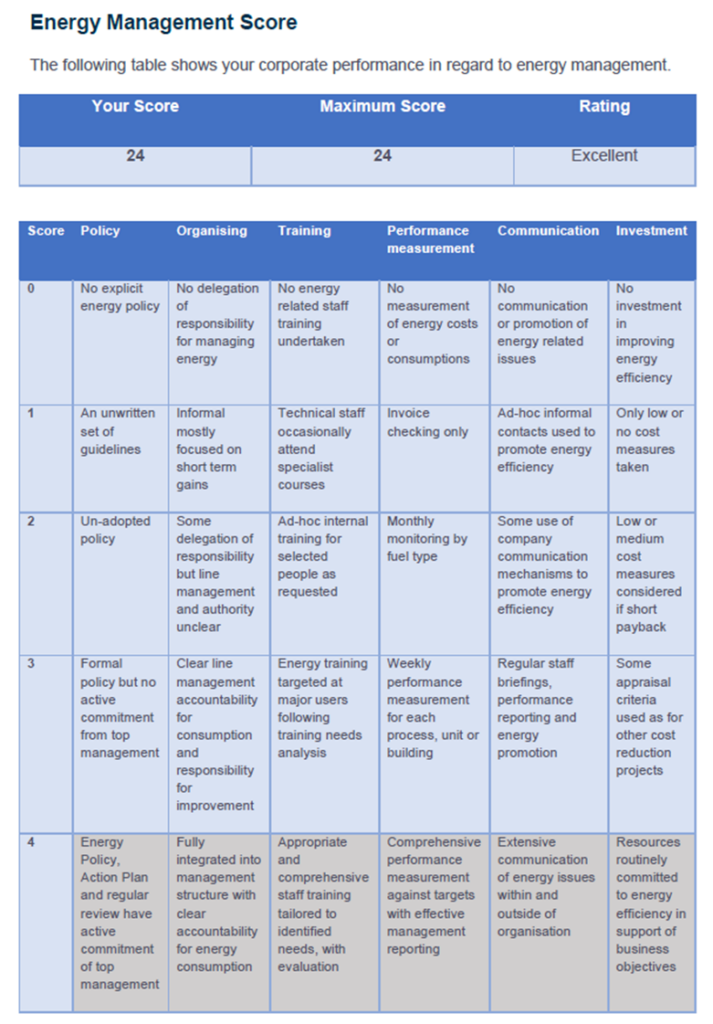Executive Summary
This plan outlines a comprehensive strategy for achieving net-zero greenhouse gas emissions by 2050, focusing on operational efficiency, community engagement, and sustainable practices. The plan aligns with the UK Government’s climate objectives and global sustainability goals.
1. Vision and Commitment
2. Baseline Assessment
3. Carbon Reduction Strategies
4. Sustainable Practices
5. Community Engagement
6. Monitoring and Reporting
7. Innovation and Adaptation
8. Funding and Resources
Conclusion
Achieving net zero by 2050 is an ambitious but attainable goal that requires collective effort and commitment. This plan sets a clear roadmap for the charity to lead by example, inspire others, and contribute to a sustainable future for the UK and the world.
The below tables outlines Local Solutions energy use as monitored by an independent energy contractor for the purposes of Energy Saving Opportunity Scheme Compliance (ESOS).
| Total Energy Consumption (kWh) over time | |||||
| End Use | Utility | ESOS Phase 3 | ESOS Phase 2 | ESOS Phase 1 | % Change(phase 2&3) |
| Buildings | Electricity | 335,648 | 642,680 | 987,633 | -48% |
| Natural Gas | 268,844 | 813,761 | 266,059 | -67% | |
| Other fuels | 604,083 | 859,263 | 97,854 | -30% | |
| Total | 1,208,575 | 2,315,704 | 1,351,546 | -48% | |
| Transport | Deisel | 279,997 | |||
| Petrol | 21,958 | ||||
| Total | 301,955 | 257,853 | 23,867 | 17% | |
| Local Solutions does not carry out any industrial processes | |||||
The following table demonstrates our corporate performance in relation to energy management conducted by an independent energy consultant.

| Cookie | Duration | Description |
|---|---|---|
| cookielawinfo-checkbox-analytics | 11 months | This cookie is set by GDPR Cookie Consent plugin. The cookie is used to store the user consent for the cookies in the category "Analytics". |
| cookielawinfo-checkbox-functional | 11 months | The cookie is set by GDPR cookie consent to record the user consent for the cookies in the category "Functional". |
| cookielawinfo-checkbox-necessary | 11 months | This cookie is set by GDPR Cookie Consent plugin. The cookies is used to store the user consent for the cookies in the category "Necessary". |
| cookielawinfo-checkbox-others | 11 months | This cookie is set by GDPR Cookie Consent plugin. The cookie is used to store the user consent for the cookies in the category "Other. |
| cookielawinfo-checkbox-performance | 11 months | This cookie is set by GDPR Cookie Consent plugin. The cookie is used to store the user consent for the cookies in the category "Performance". |
| viewed_cookie_policy | 11 months | The cookie is set by the GDPR Cookie Consent plugin and is used to store whether or not user has consented to the use of cookies. It does not store any personal data. |